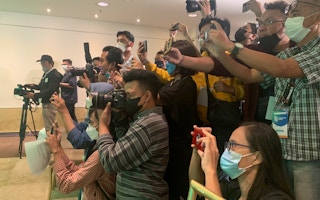For some, environmental issues had felt like safe reporting territory a few years ago, but that is no longer the case. Journalists from India to Thailand share the constraints they face when reporting on powerful governments and corporations.

Thailand
Tom Vater is a freelance journalist and author based in Bangkok. He has written for Nikkei Asia, The Mekong Review, The Wall Street Journal, The Economist and Eco-Business, on the environmental risks of Thailand’s cannibis trade.
Freedom of expression and media freedom is certainly limited in Thailand, though that is not specifically related or limited to environmental issues but rather encompasses any entrenched interests by powerful stakeholders keen to preserve their political power and business privileges. Thai journalists have to tread particularly carefully.
The high profile case of Andy Hall, a workers rights campaigner who was sued by a fruit company, definitely sent a chilling message to anyone trying to expose firms abusing their workers. On the other hand, the arrest and eventual conviction of a construction tycoon for killing and eating a rare black panther in a national park may not have happened if there had not been a huge social media campaign and news coverage of the case. That said, this was a one-off crime by a wealthy businessman, not a true environmental scandal caused by a Thai company.
A valuable and much-needed resource that reports on environmental and human rights activists and their struggles both against the Thai government and private companies is HaRDstories.org, which was founded in 2021 by the Equal Narratives Foundation to uphold human rights and deepen democracy in the country.
